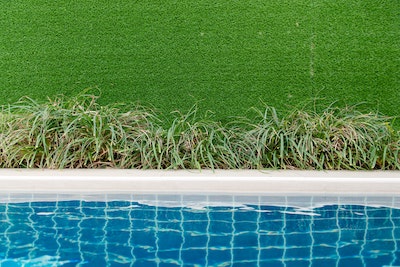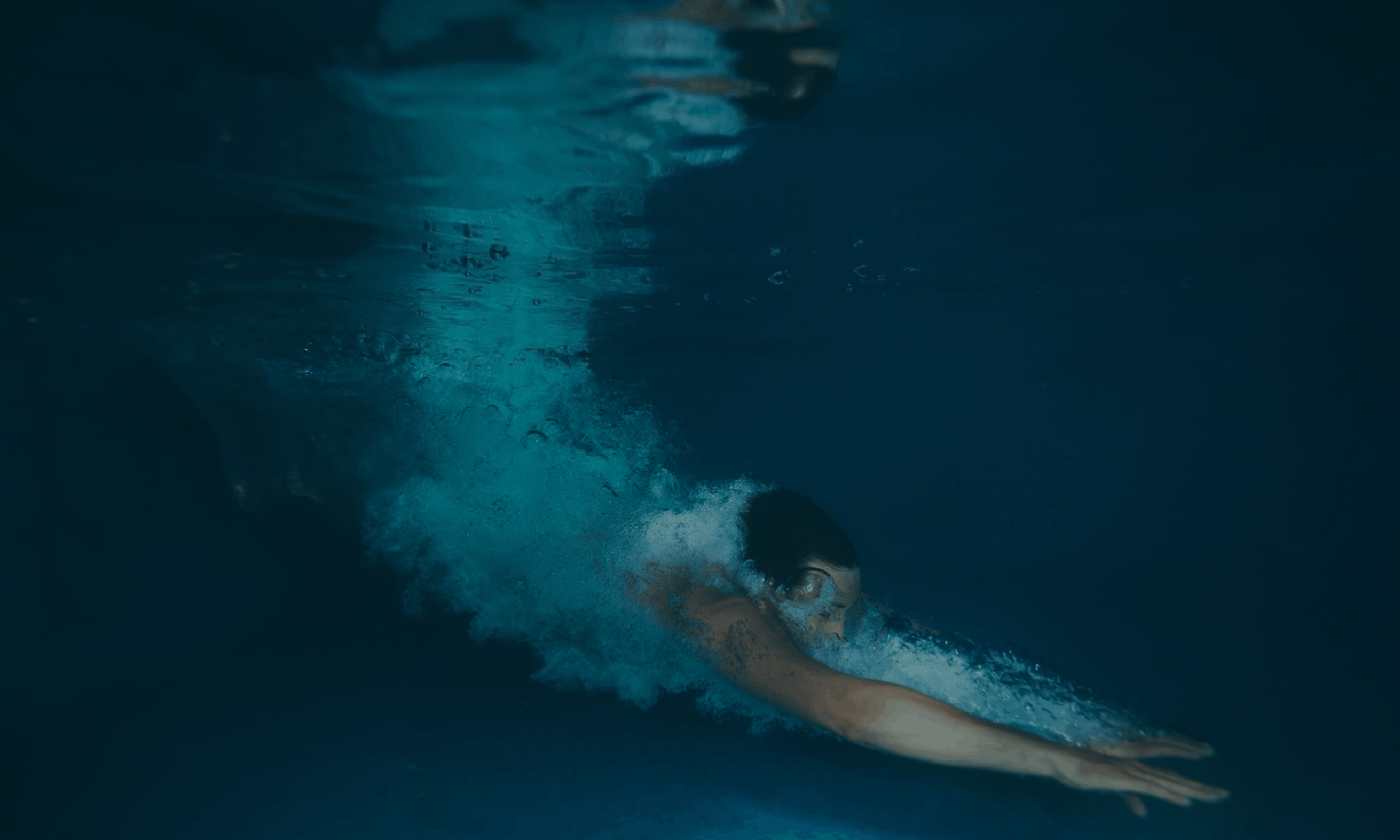14 May Why Does My Pool Keep Turning Green? Complete Guide
Reasons Your Pool Keeps Turning Green
There’s nothing better than dipping your toes in a pool on a hot Summer’s day. The bright blue water is inviting you to take a dip and enjoy the fresh clean waters to escape the heat. While your swimming pool should be a place of entertainment and enjoyment, sadly many people think otherwise. Their pool keeps turning green and they don’t know why! Before they know it, Summer is over and they haven’t been able to dip in their pool at all.
Why does your pool keep turning green? There are several reasons your pool is turning green:
- The Pool Filter Isn’t Working Properly
- Pool Chemistry Has Low Alkalinity
- Not Enough Chlorine in the Pool
- Algae Lives in Your Pool
Believe it or not, but your swimming pool can be very delicate. Chemicals must be balanced properly to help maintain the cleanliness of your pool and pool equipment must function properly. Pool maintenance is required throughout the year and especially in the months, the pool is in use. Keep reading to see how you can keep your pool from turning green.
The Pool Filter Isn’t Working Properly
One reason your pool may be turning green is that your pool’s filter isn’t working properly. Pool filters are one of the essential pieces of equipment for your pool, and it does many things to keep your pool clean. Here are some ways your pool filter benefits the health of your pool:
- Collects and stores debris
- Returns clean water to the pool
- Circulates the water
For the health of the people who use your pool, your pool filter must work properly. Swimming in contaminated water can be dangerous, as your body is constantly absorbing water when you swim.
If your pool is starting to turn green, it may mean that the filter isn’t functioning properly. A green pool can be a sign that the water isn’t circulating as it should, which is the filter’s job. You can check your filters to see if there is any debris clogging them or keeping them from working. Filters also need to be cleaned regularly to work properly.
While keeping track of the health of your pool filter is important, it can be a big task if you’re short on time or don’t know what to do. That’s where Integrity Pool Service in Tulsa comes in. If you’re in the Tulsa metropolitan area, we can provide year-round Tulsa pool maintenance and make sure your pool is functioning as it should.
Pool Chemistry Has Low Alkalinity

If your pool is turning green, the chemicals in your pool may be resulting in a low pH, also known as low alkalinity. This means that the chemicals in your pool create a more acidic environment, where algae can thrive.
If the pH level of your pool is acidic, it can damage pool equipment and affect the cleanliness of the water you swim in. Having the correct pH level is important to the balance of your pool. The pH level measures from 0 – 14, numbers closer to 0 being acidic and numbers closer to 14 being alkaline. The goal is to balance the chemicals in your pool to be around 7.4 on the pH scale, which would mean an equal balance of acidic and alkaline.
You can monitor the pH levels of your pool by using testing strips. Pool water will be put on the testing strip and the test will tell you whether your pool leans more acidic or alkaline. Remember, the goal is to have a pH balance that leans just as much alkaline as it does acidic. Both ends of the spectrum can cause problems in your pool so it’s important to keep the pH in the middle of the two.
Integrity Pool Service can test the pH levels of your pool and make sure the chemicals in your pool are safe to swim in. Contact us today!
Not Enough Chlorine in the Pool
Another important chemical in keeping your pool clean is chlorine. We’ve all been to the pools that have too much chlorine; you can smell the chemical as soon as you walk into the pool yard. Too much chlorine in a pool can also cause your skin and eyes to become irritated. But what does not enough chlorine do?
The reason we have chlorine in our pools is to kill off any microorganisms and bacteria that live in the pool. If there isn’t enough chlorine in the pool, these organisms can thrive, including algae.
If your pool is turning green, it may mean that there isn’t enough chlorine. The effects of chlorine can also be thrown off by other chemicals in the pool. If the pH levels in your pool are off, the chlorine may become ineffective. Sunlight can also break down the chlorine in the pool. To learn more about pool chlorine, click here.
Luckily, there are many easy ways to maintain chlorine levels in your pool. You can use chlorine tablets or granules or pour in liquid chlorine. Whichever way you choose, just be sure to follow the specific directions that go with your method. As always, messing with chemicals can be dangerous, so it’s important to follow the instruction.s
Integrity Pool Service provides Tulsa pool chemistry. We will make sure that the chemicals in your pool are balanced correctly and working as they should!
Algae Lives in Your Pool
One reason your pool may be turning green is that algae live in your pool. Algae is a microorganism that lives in many different bodies of water, from streams and ponds to oceans and pools. One way algae can come to live in your pool is if you go play in a creek and then come back and swim in your pool.
Luckily, if chemicals are balanced and working properly in your pool, the algae should be killed quickly. If the chemistry of your pool is off, algae can thrive and multiply quickly, turning your pool into a green mess overnight.
There are a few ways you can rid your pool of algae:
- Maintain proper pool chemistry balance
- Use a manual pool vacuum to clean the pool
- Use a stiff pool brush to scrub the algae away
- Put Calcium HypoChlorate shock in your pool
- Make sure you filter is running
- Use algaecide
There are many options to rid your pool of algae, although if algae have taken over your pool, it can seem like quite a chore to return your pool to normal. Call Tulsa pool service, Integrity Pools today.
Frequently Asked Questions
How Often Should I Clean My Pool?
Clean Out Skimmer Filters At Least Once a Week
One part of your pool’s filter system to be aware of is the skimmer filters. You may come across these while you’re swimming; they are filters set at the water’s surface level to catch and capture debris that floats on the surface of the water. These skimmer filters usually catch ants, bugs, leaves, and other things that may float in your pool.
If you have a pool, check your skimmer filters weekly to ensure they are working properly. You’ll also want to clean out any debris that the filter may have captured to keep water circulating properly.
Check Pool Chemistry Twice a Week
At the peak of the swimming season, you should be checking the chemistry of your pool at least twice a week. Pools can have swimmers visiting every day, which could throw off the chemistry of the pool. To maintain safe and balanced chemistry in your pool, you should test the chemicals twice a week.
In the colder months when your pool isn’t being used, you can limit your pool chemistry testing to once or twice a month. However, it’s important to maintain testing even in the months you don’t use the pool. Chemical imbalance can cause damage to pool equipment that some wouldn’t notice until it’s time to use the pool again.
Integrity Pool Service provides year-round Tulsa pool maintenance to keep your pool healthy and safe. With years of experience, we provide a premier service and treat your pool as if it were our own. We provide pool maintenance, repair, and chemistry services to the Tulsa metropolitan area. Contact us here if you need your pool serviced today!



